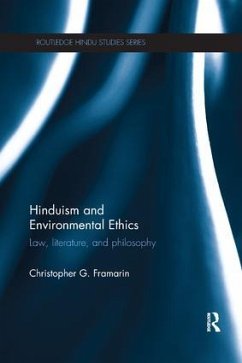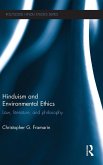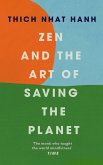This book argues that the standard arguments for and against the claim that certain Hindu texts and traditions attribute direct moral standing to animals and plants are unconvincing. It presents careful, extensive, and original interpretations of passages from the Manusmrti (law), the Mah¿bh¿rata (literature), and the Yogas¿tra (philosophy), and argues that these texts attribute direct moral standing to animals and plants for at least three reasons: they are sentient, they are alive, and they possess a range of other relevant attributes and abilities. This book is of interest to scholars of Hinduism and the environment, religion and the environment, Hindu and/or Buddhist philosophy more broadly, and environmental ethics.
Hinweis: Dieser Artikel kann nur an eine deutsche Lieferadresse ausgeliefert werden.
Hinweis: Dieser Artikel kann nur an eine deutsche Lieferadresse ausgeliefert werden.








